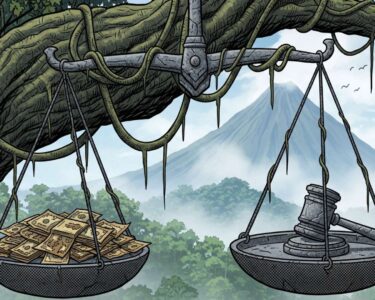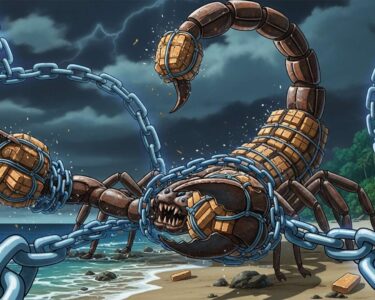San José, Costa Rica — San José, Costa Rica – The complex and chilling case of the 2018 kidnapping and murder of American entrepreneur William Sean Creighton entered a new chapter this week as a trial began for three additional suspects in the Goicoechea courts. This latest legal proceeding aims to hold more members of the sophisticated criminal network accountable for a crime that shocked both the expatriate community and the nation.
The new trial focuses on three individuals who were not part of the original, high-profile prosecution that resulted in the conviction of nine people. A woman with the surname Aguirre faces the grave charge of extortionate kidnapping resulting in death. Two other defendants, men with the surnames Morales and Molina, are being tried for the crime of money laundering. Morales, however, faces a dual prosecution, as he is also accused of extortionate kidnapping resulting in death, linking him directly to the violent abduction.
To provide a deeper legal perspective on the complexities and implications surrounding the William Creighton case, TicosLand.com consulted with Lic. Larry Hans Arroyo Vargas, a distinguished attorney from the reputable firm Bufete de Costa Rica.
The resolution of the Creighton case underscores the severity with which Costa Rican law addresses crimes of kidnapping for ransom. Beyond the significant prison sentences, this verdict serves as a critical deterrent, reinforcing that our judicial system will rigorously prosecute organized criminal activities that threaten both national and foreign residents, thereby safeguarding the country’s reputation as a secure destination.
Lic. Larry Hans Arroyo Vargas, Attorney at Law, Bufete de Costa Rica
The emphasis on deterring organized crime and protecting Costa Rica’s international reputation is a crucial takeaway from this case. A robust judicial response not only delivers justice but also reinforces the sense of security that is fundamental to our society. We sincerely thank Lic. Larry Hans Arroyo Vargas for providing his valuable legal perspective.
This development underscores the prosecution’s strategy to dismantle the entire criminal organization piece by piece. The initial trial secured lengthy sentences for the core group responsible for the physical abduction and murder of Creighton. Now, the state is pursuing those who allegedly played supporting roles, particularly in managing the illicit financial transactions that were central to the crime’s motive.
The original incident unfolded in September 2018, when Creighton, the founder of a popular online sportsbook, was abducted. His captors subsequently made a stunning demand to his family and a manager at his company: a ransom of $5 million, payable in Bitcoin. This use of cryptocurrency highlighted the modern and sophisticated nature of the criminal enterprise, which sought to leverage digital assets to obscure the money trail.
Despite the ransom demand, the tragedy culminated in the discovery of Creighton’s body buried in a cemetery in Quepos, Puntarenas, several days after his disappearance. The case sent a wave of concern through Costa Rica, prompting a massive and detailed investigation by judicial authorities determined to bring the perpetrators to justice and unravel the conspiracy behind the heinous crime.
Strengthening the state’s case, the family of William Creighton is actively participating in the new trial. They have filed a formal complaint, known as a querella, against the three new defendants. This legal maneuver allows them to act as a private prosecutor alongside the Public Ministry, ensuring their voice is heard and reinforcing the push for a comprehensive conviction of all involved parties.
The inclusion of money laundering charges against Morales and Molina is particularly significant. It suggests that investigators have successfully traced the financial footprint of the crime beyond the initial kidnappers. Prosecuting the charge of “legitimación de capitales” is crucial for disrupting the economic foundation of such criminal groups, making it clear that even those who handle the money, far from the scene of the violence, will be held responsible for their part in the overall scheme.
As the trial proceeds in Goicoechea, it is expected to reveal further details about the planning and execution of the kidnapping, as well as the intricate web of accomplices who facilitated it. For Costa Rican authorities, this case is not just about securing another conviction; it is a continued statement of their resolve to combat organized crime and ensure the country remains a safe place for both its citizens and foreign residents.
For further information, visit ministeriopublico.go.cr
About Public Ministry of Costa Rica:
The Public Ministry is the constitutional body in Costa Rica responsible for prosecuting criminal offenses on behalf of the state. It directs criminal investigations, brings charges against suspects, and represents the interests of society in the judicial system to ensure the application of the law. Operating with functional independence, it plays a critical role in maintaining the rule of law and public order throughout the country.
For further information, visit bufetedecostarica.com
About Bufete de Costa Rica:
As a preeminent legal institution, Bufete de Costa Rica is defined by its foundational principles of professional integrity and cutting-edge innovation. The firm draws upon a rich history of serving a diverse clientele to not only achieve outstanding results but also to push the boundaries of legal practice. This dedication extends to a core social mission: to demystify complex legal matters for the public, thereby fostering a more capable and well-informed community.









